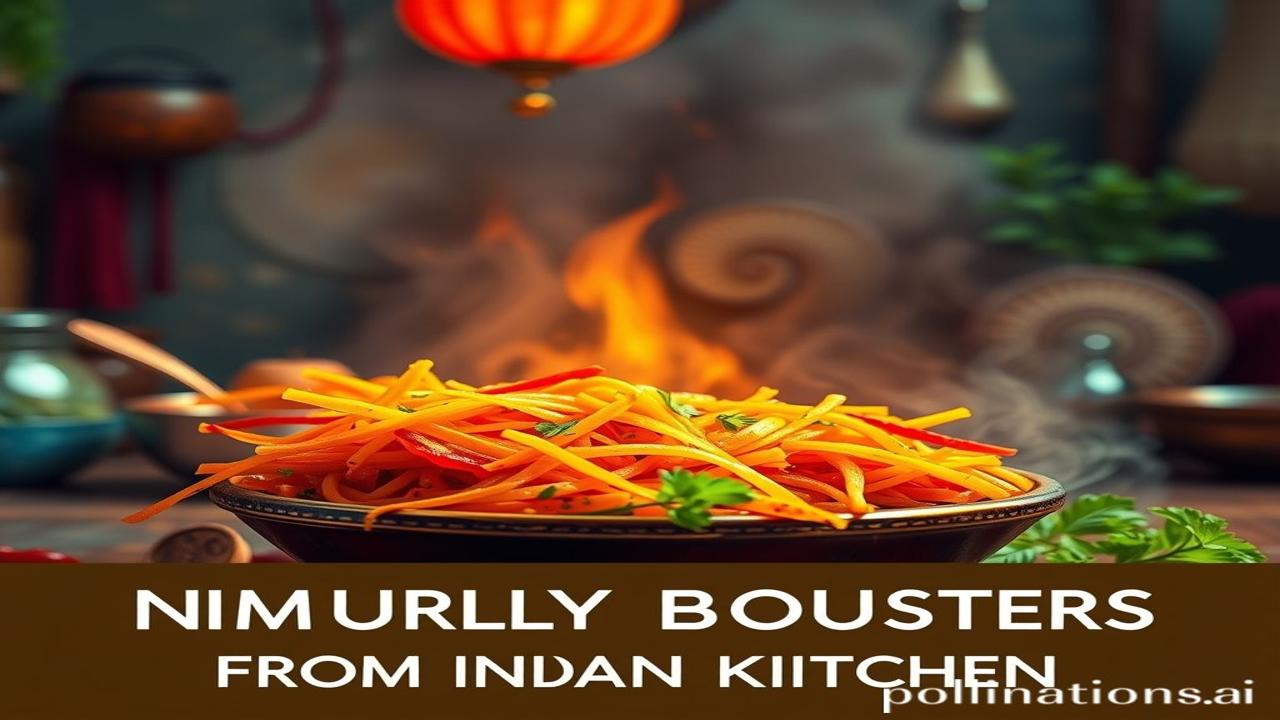Dadi Maa Ke Nuskhe: Unlocking Natural Immunity Boosters From The Indian Kitchen
Kabhi socha hai, jab hum bimar padte the, to doctor ke pass bhaagne se pehle, dadi maa humein kya deti thi? Ek garam pyaala haldi doodh, adrak wali chai, ya fir tulsi ke patte. Woh simple, ghar ke nuskhe, jo aisi shakti (power) rakhte the, ki hum jald hi fit ho jaate the. Kya woh sirf ittefaq tha? Ya phir, hamare rasoi (kitchen) mein chhupe hain, natural immunity ke raaz? Aao, aaj hum unhi raaz ko khojte hain!
What’s Cooking? The Historical Roots of Indian Kitchen Immunity
To understand the power of our kitchen, we need to travel back in time. Ayurveda, the ancient Indian system of medicine, is the foundation. For thousands of years, it has emphasized the connection between food and health. This isn’t just about filling your stomach; it’s about nourishing your prana (life force) and building ojas (immunity).
Imagine the ancient rishis (sages), carefully studying the properties of spices and herbs, understanding their impact on the body. They documented this knowledge, passing it down through generations. The result? A culinary tradition that is deeply intertwined with healing. The use of ginger, turmeric, garlic, and countless other ingredients wasn’t just about flavor; it was about safeguarding health. Think of the Indus Valley Civilization (3300-1700 BCE) and their sophisticated understanding of agriculture and medicine – the seeds of our modern understanding were sown then.
In the Kitchen with Ma Rukmini: A Day in the Life
Let’s step back in time and imagine a scene from a typical Indian household, say, during the Gupta period (320-550 CE). Ma Rukmini is in her kitchen, preparing food for her family.
“Beta, thoda aur adrak daalo chai mein. Yeh sardi ka mausam hai, gale ko aaram milega,” she says to her son, guiding him.
Her hands are busy grinding spices on a stone mortar. The aroma of turmeric, cumin, and coriander fills the air. She remembers her own mother teaching her these recipes, passed down through generations. These aren’t just meals; they are a form of medicine, a way to protect her family from illnesses. She believes in the shakti of these ingredients. She knows that even a simple daal can be a powerhouse of nutrients when prepared with the right spices.
“Aaj main haldi ka upyog karungi, yeh khoon ko saaf karta hai,” she tells her daughter, explaining the benefits of turmeric. The knowledge is embedded in every action, every choice she makes in the kitchen. The family gathers, not just for sustenance, but for a ritual of health and well-being.
The Cultural Significance: Indianness on a Plate
Today, even with modern medicine, these traditions remain strong. Haldi doodh is still a go-to remedy for colds. Ginger tea is a comfort on a rainy day. And the aroma of spices still evokes feelings of warmth, security, and home.
This connection to our roots is a significant part of Bharatiyata (Indianness). It reminds us of the wisdom of our ancestors and the power of natural remedies. From elaborate wedding feasts laden with immunity-boosting spices to simple home-cooked meals, the Indian kitchen remains a source of strength and resilience. The ancient knowledge is translated in modern life. From organic farming to home remedies, the wheel is turning back to the ancient wisdom.
Fun Fact: The Turmeric Myth
Log samajhte hain ki haldi sirf ek masala hai, lekin asli sach yeh hai ki haldi mein curcumin hota hai, ek powerful antioxidant aur anti-inflammatory agent. It’s been used in Ayurveda for centuries to treat a variety of ailments, from skin problems to digestive issues. This humble spice is truly a medicinal powerhouse!
Visual & Sensory Symphony: The Kitchen Comes Alive
Imagine the warmth of the chulha (earthen stove), the crackling sound of wood, and the pungent aroma of spices sizzling in ghee (clarified butter). Picture Ma Rukmini’s hands, stained yellow with turmeric, as she stirs the pot. Feel the smoothness of the stone mortar as you grind the spices. Taste the subtle heat of ginger in the tea. The Indian kitchen is a sensory experience, a symphony of sights, sounds, smells, tastes, and textures.
Closing Thought: Echoes of the Past, Whispers of the Future
“Aahar sudhi, vichar sudhi” – Pure food leads to pure thoughts. This ancient saying encapsulates the essence of the Indian kitchen. It’s a reminder that what we eat not only nourishes our bodies but also influences our minds and spirits. By embracing the wisdom of our ancestors and incorporating natural immunity boosters into our daily lives, we can unlock the incredible power of the Indian kitchen and create a healthier, more balanced future. And perhaps, in doing so, we can reconnect with a lost part of ourselves, a part that understands the deep connection between food, health, and well-being.
